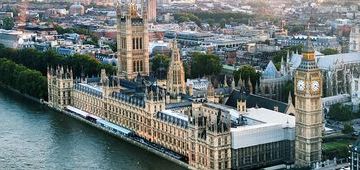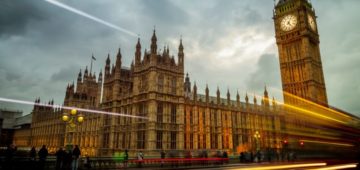- 06 December 2021
RSPH, with support from the Faculty of Public Health (FPH), is calling for the personal possession and use of all illegal drugs to be decriminalised. The call forms part of a wider package of measures aimed at moving UK drugs strategy away from a predominantly criminal justice approach towards one based on public health and harm reduction.
A representative poll of more than 2,000 UK adults found more than half (56%) agree drug users in their area should be referred to treatment, rather than charged with a criminal offence. Less than a quarter (23%) disagreed.
The recommendation is made in a new RSPH report, Taking a New Line on Drugs, endorsed by FPH and with the backing of Parliamentarians, drugs reform charities and law enforcement groups. The report, which is published ahead of the Government’s expected drugs strategy, argues a new approach is needed since, although overall drug use has fallen in recent years, drug-related harm – including drug-related death – has continued to rise.
Other key recommendations include:
- Universal provision of evidence-based drugs education to young people through statutory Personal, Social, Health and Economic (PSHE) education in schools.
- Moving lead responsibility for drugs strategy from the Home Office to the Department of Health and aligning more closely with alcohol and tobacco strategies.
- Use of evidence-based drug harm profiles to inform enforcement priorities and public health messaging.
RSPH and FPH advocate a Portuguese-style model whereby, although drug possession is still prohibited, users are referred to treatment and support programmes, rather than charged with a criminal offence. Producers and suppliers would still be prosecuted. International evidence suggests this could lead to significant reductions in many forms of drug-related harm, without promoting increases in problematic use.
The report argues that criminalisation itself leads directly to additional long-term health and wellbeing harm, including greater exposure to drugs in prison, severing of family relationships, and barriers to education and employment. This harm falls disproportionately on disadvantaged ethnic and socio-economic groups – who are far more likely to be charged for drug possession despite similar levels of use – exacerbating existing health inequalities. Simultaneously, the report argues, criminalisation fails to address underlying substance misuse issues and discourages those with an addiction from coming forward for treatment – one in four young people say they would be put off seeking help by a drug’s illegal status.
Shirley Cramer CBE, Chief Executive of RSPH, said: “For too long, UK and global drugs strategies have pursued reductions in drug use as an end in itself, failing to recognise that harsh criminal sanctions have pushed vulnerable people in need of treatment to the margins of society, driving up harm to health and wellbeing even as overall use falls. On many levels, in terms of the public’s health, the ‘war on drugs’ has failed. The time has come for a new approach, where we recognise that drug use is a health issue, not a criminal justice issue, and that those who misuse drugs are in need of treatment and support – not criminals in need of punishment.”
Professor John Middleton, President of FPH, added: “We need a new, people-centred approach to drug policy, rooted in public health and the best available evidence. This report is an important part of a growing, powerful evidence base that sets out what that approach should look like. The time for reframing the global approach to illicit drugs is long overdue. The imbalance between criminal justice and health approaches to illicit drugs is counterproductive. Criminalisation and incarceration for minor, non-violent offences worsen problems linked to illicit drug use, such as social inequality, violence and infection. Possession and use should be decriminalised and health approaches prioritised.”
Baroness Molly Meacher, speaking on behalf of the All-Party Parliamentary Group for Drug Policy Reform, added her support: “The report of the Royal Society for Public Health is very much welcomed. It argues that the valuable work of health professionals in dealing with the health and social consequences of the harms caused by drugs is impeded rather than assisted by a muddled prohibitionist framework that criminalises some users of psychoactive drugs whilst very harmful psychoactive drugs including alcohol and tobacco remain legal. It calls for a rational, evidence-based approach to address the harms of all psychoactive substances led by the Department of Health; focussing resources on a health approach to drug harms based on the decriminalisation of the possession of drugs. The resources released should be used to enhance the role of the wider public health workforce to assist in the harm reduction and recovery of problematic drug users and the support to communities damaged by the illicit drug trade.”



